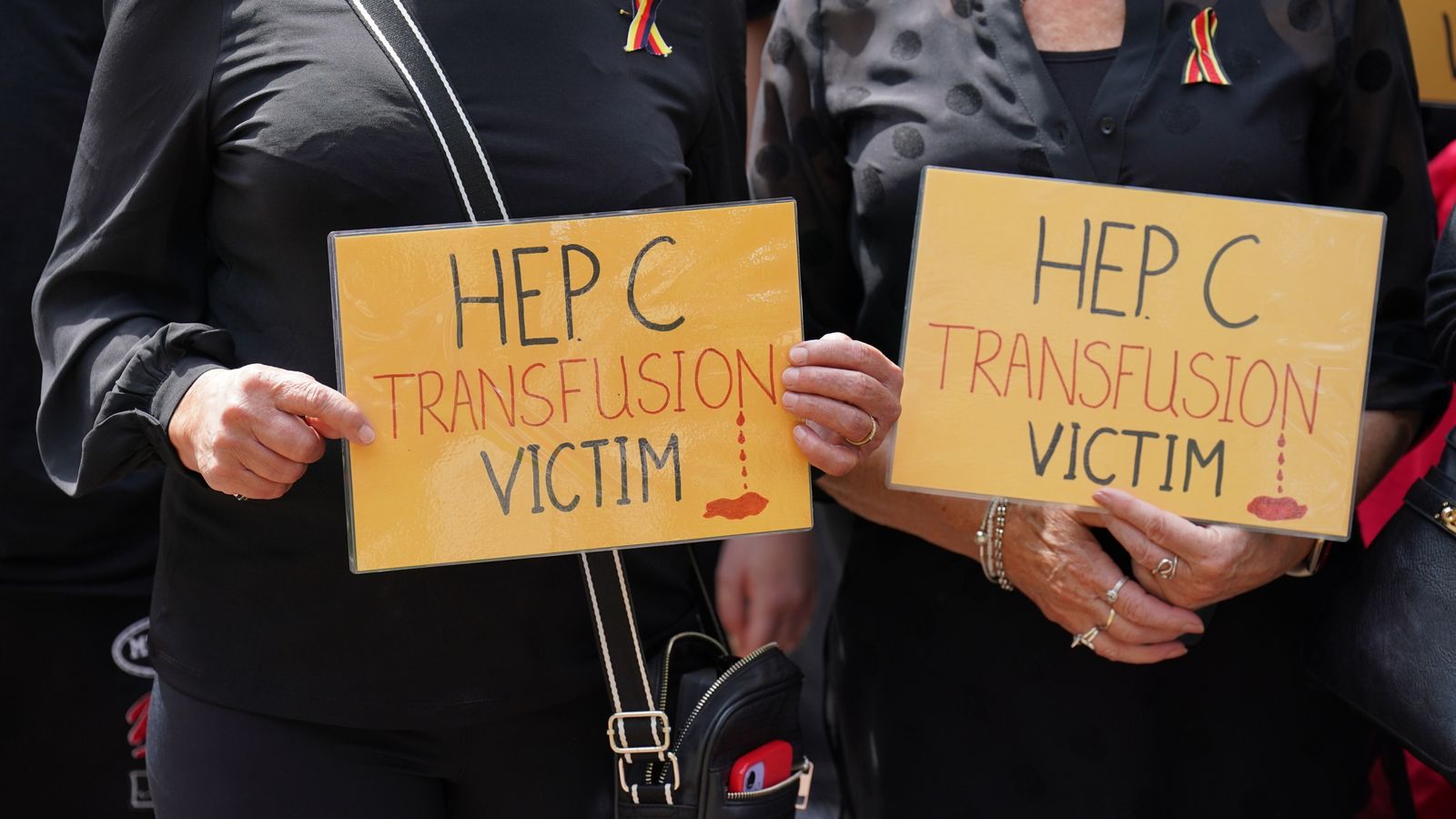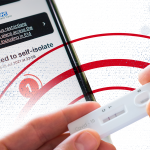The government is braced for a defeat in the Commons after Labour and Tory MPs supported calls for a new body to be set up to compensate victims of the infected blood scandal.
Labour MP Dame Diana Johnson has tabled an amendment to the government’s Victims and Prisoners Bill that would require ministers to establish a new body with the aim of administering full compensation within three months of the bill becoming law.
Thousands of people died in what is widely recognised as the worst treatment disaster in the history of the NHS.
The scandal saw patients infected with HIV and hepatitis C through contaminated blood products imported from the US during the 1970s and 1980s.
Decades later, some bereaved families are still waiting for compensation.
So far a total of 30 Tory MPs have signed the amendment which will be put to a vote on Monday.
Shadow chancellor Rachel Reeves confirmed Labour’s support in a letter to Jeremy Hunt in which she confirmed the party would back Dame Diana’s amendment, saying: “All of us now have a responsibility to address this historic wrong.”
And Peter Kyle, shadow secretary of state for science, innovation and technology, revealed that his “mentor”, Body Shop founder Dame Anita Roddick, had died as a result of contaminated blood administered to her during childbirth.
Under Dame Diana’s proposal, a Hugh Court judge would chair the new body and take into account speed, simplicity and fairness in delivering compensation to victims.
The cross-party push comes after the independent inquiry into the scandal delayed its final report until March 2024 due to the “sheer volume and scale of the material”.
A number of politicians have acknowledged the need for compensation, but Cabinet Office minister John Glen last month said the government’s response would be informed by the inquiry’s final report.
Please use Chrome browser for a more accessible video player
Under an initial scheme, only victims themselves or bereaved partners can receive an interim payment of around £100,000 in compensation – but campaigners want to see this extended to bereaved parents and orphaned children.
Appearing in front of the official Infected Blood Inquiry in July, Mr Hunt said “no decisions” had been made over the level of compensation for victims and that he could not ignore the current economic context while making judgments on “potentially very large” sums of money.
However, he insisted the government has “accepted the case” for a compensation scheme and has been working “at pace” on how to deliver it.
In her letter to Mr Hunt, Ms Reeves said it was estimated that someone affected by infected blood dies “every four days”.
“This bill provides the opportunity to put into law the steps that can be taken now to begin to deliver justice for the victims,” she wrote.
Read more:
Sunak heckled as he fails to answer compensation questions
Around 380 children infected with HIV through blood products
The Infected Bloody Inquiry was set up in 2017 to investigate how thousands of patients in the UK developed HIV and hepatitis C through contaminated blood products.
About 2,900 people have died since the inquiry began.
Many had the blood-clotting disorder haemophilia and were given injections of the US product Factor VIII.
In April, Sir Brian Langstaff, chair of the inquiry, recommended parents and children who suffered bereavements should be awarded interim compensation payments.
However, the government has insisted it will wait for the conclusion of the inquiry before making decisions on the compensation scheme.






















